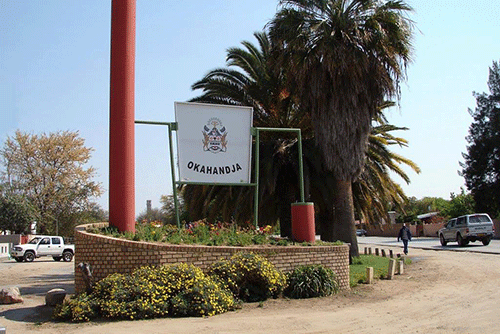The Okahandja municipality has rejected a revenue-collection proposal by the community whose water has been disconnected due to unmanageable municipal bills, which have run into millions of dollars.
Lately, the municipality has through its debt collection agency Redforce been disconnecting water from defaulters in the town, who collectively owe close to N$200 million in outstanding rates and taxes accumulated over the years. Since the exercise began some weeks ago, many residents, including senior citizens, have been without water at their homes, and have resorted to buying water from neighbours, relatives and friends.
The issue sparked various community meetings which sought recourse with the municipality to reconnect their water, to no avail.
One such meeting was held last week when residents, mainly the elderly, gave an ultimatum that without any further delay, the municipality should suspend or terminate forthwith the contract with Redforce.
“In compliance with this ultimatum, please take note that all households that you placed on the list of Redforce, hereby suspend their payments until such time that prepaid water meters are deployed at their respective premises – supported by the revenue- collection prepayment system installed at the municipal offices,” the community demanded.
The community also proposed to the municipality to manage the revenue- collection system in the ratio of 80:20 – where 80% of any expended amount pays for new quantities of water, while the remaining 20% is distributed towards the long-term repayment of outstanding debts.
However, Okahandja’s strategic executive of finance Pesella Nunda last week said that ratio is not viable to recover the huge amounts owed.
“This will not work. The municipality has been implementing different strategies to recover arrears, to no avail. This is a problem which started years ago, hence the appointment of debt-collecting specialists with the necessary resources to help recover debts. The revenue-collection ratio on households with prepaid water meters is 50:50, and this still has not proven to be effective. The proposal by the residents will never work,” Nunda stressed.
He added that the municipality has been working in this business for many years, and they have learned what does not work. It will thus be a waste of resources to try to implement something that they know very well has been tried before and has not worked.
The community equally demanded – without any advance payment – that the municipality deploys the available 5 000 prepaid water meters at all consumer households, starting with those most affected by outstanding municipal bills.
In this regard, Nunda said the stock of prepaid meters at the council’s stores is less than 2 000, and not 5 000.
He explained that council has resolved to prioritise the installation of prepaid meters at the homes of pensioners to help them manage their municipal debts better, especially with regards to water consumption, which can go out of control when the plumbing in their homes is old and not properly maintained due to their socio-economic standing.
“Many households with delinquent accounts were installed with prepaid water meters from the financial year 2018. But this is not a silver bullet solution that is going to magically solve the problem of delinquent accounts in Okahandja. As with many, it has caused them to further slide into indebtedness as they only concentrate on buying water and ignore to pay their monthly service charges such as refuse collection, sewerage charges, and rates and taxes.”
Furthermore, Nunda reasoned that resources are scarce, saying these prepaid meters are not enough to cover all households with delinquent accounts and they cost money to procure, money the municipality does not have.
He said the contract entered into by the council cannot be terminated merely because the community says so. The reasons to demand the termination of this contract are also unreasonable.
“The total debt book value of the Okahandja municipality is N$182 735 913.81. We have been mandated as management to collect and recover the full amount. The municipality can only operate sustainably as a going concern if residents do pay for services and their statutory obligations such as rates and taxes. It is inconceivable that people want to continue with the culture of non-payment in town, and in the same vein also expect the quality of services to improve,” he hit back.
In terms of the relevant laws applicable, Nunda observed that they have every right to claim what is due to the municipality.
He noted with concern that there is a section of residents who pay their bills religiously in town, while the other section of the community owes the municipality millions collectively.
This disadvantages the whole town at the end of the day. Amongst others, Nunda said the town is suffering from dilapidated urban infrastructure which requires funds to be refurbished; old service equipment and a fleet needs replacing which requires funds; the dumpsite which needs to be decommissioned ,and a new landfill that needs to be constructed which needs serious funding.
Equally, he mentioned that the cemeteries are becoming ful,l and new ones need to be established. All this and other urgent needs in town, including land delivery, require serious funds.
“Sabotaging council efforts to mobilise funds legally owed to it is counter-productive and unfortunate. To date, no one has presented to council the laws that have been transgressed in the appointment of these service providers,” Nunda continued.
– anakale@nepc.com.na
Pic: revenue
Caption:



